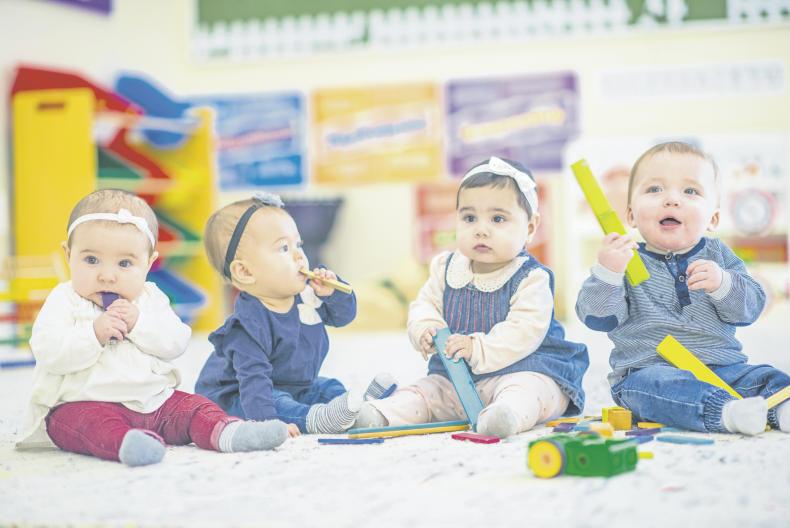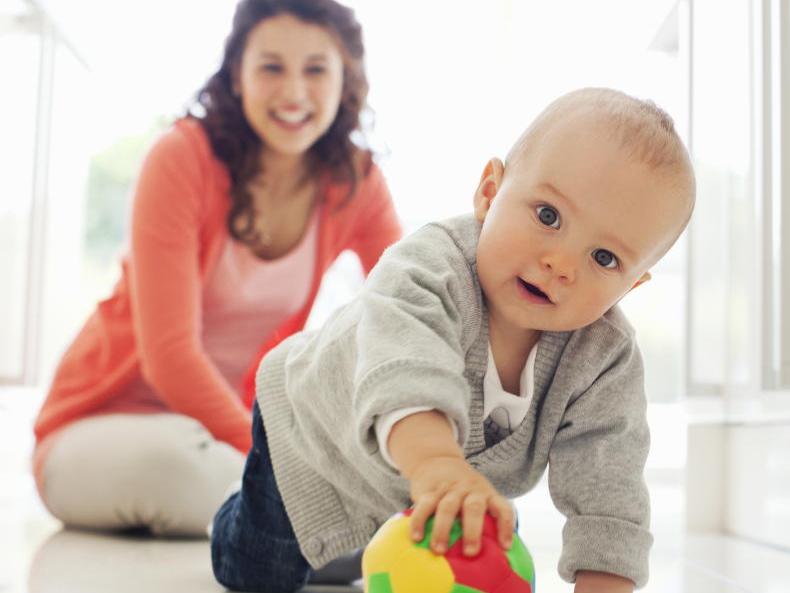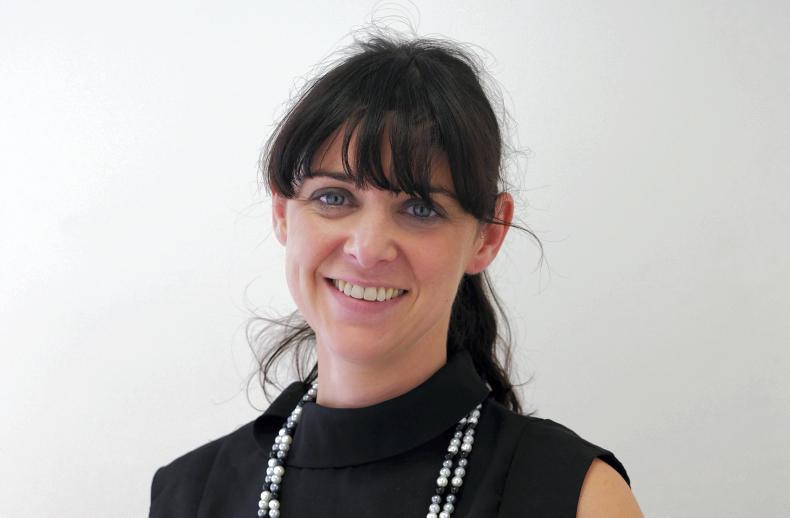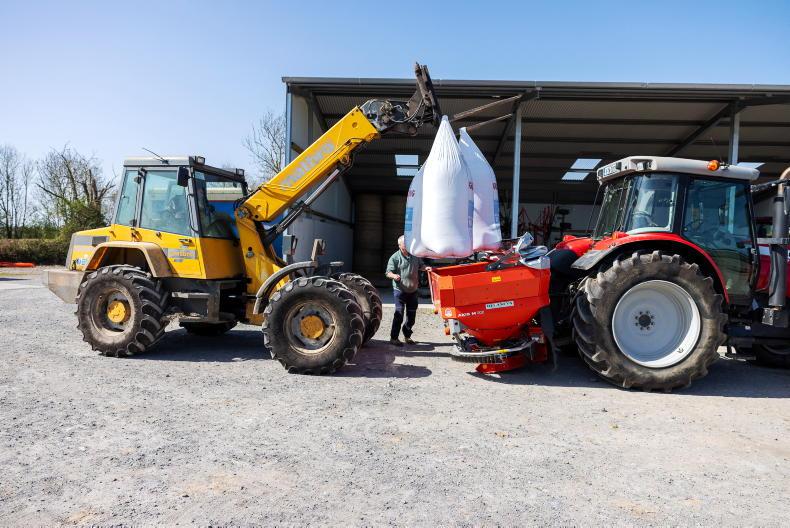Hugely important – that’s what the years zero to five in a child’s life are.
That’s because the brain develops more during this period than at any other time and the millions of neuro-connections that are created during this time lay down the foundations for learning, health and behaviour throughout a person’s life.
Child development is assessed for free in our health service to see that their brains and bodies are developing normally – in other words, that they are reaching their developmental milestones.
“Developmental checks are so important,” says Jenny Carroll, an assistant director of public health nursing based in Dublin.
Developmental checks begin days after birth and continue until the age of three. Expect the public health nurse (PHN) in your area to request appointments at the ages of three months, seven to nine months, between 18-24 months and again when your child is three-years-old.
The importance of a child being given the right environment to develop in is highlighted in what Jenny has to say about children who are homeless.
“What we are finding with homeless families is that children are not developing the way they should because they are in a hotel room.
“They’ve no space in cluttered rooms and sometimes they have to stay out of the hotel during the day, so we’ve a lot of children whose lower limbs are not as well developed as they should be from sitting in buggies. They are not playing on the floor or walking as much as they should; often toilet training is delayed as well. Emotional development can also be delayed. Parents having the right environment is so important.”
Parents, get off your phones
Some parents don’t realise that they have to introduce certain foods/stimulations at certain stages to aid the growth and brain development of their children so that they can move on to the next stage, she says.
“We’d say to parents, ‘Talk to your child while you’re out for a walk or in a cafe rather than be preoccupied with your mobile phones. Bring your child’s face up to your face. How are they meant to know how to talk unless they see your face and your expression?’ We are seeing more and more parents in cafes who are on their phones instead of talking to their children.”
Developing at different rates
While children develop at different rates, it is the job of the PHN to monitor their developmental milestones – and refer children on for help if everything isn’t going to plan.
First public health nurse visit
The first visit – a statutory developmental core check that you have to agree to – is a “biggie”.
“We are welcomed into the house where we establish a relationship with the family. We assess that they are able to provide a safe, comfortable home for this vulnerable child,” Jenny says.
“We would assess how the mother is transitioning to parenthood. It’s all verbal but hugely observational. We assess the mom’s and partner’s bonding and attachment to the baby. You can see it, the love when the mother looks at her baby.”
Immediate bonding doesn’t always happen however.
“It could be the result of a traumatic birth, over tiredness or problems with breast feeding, for example. Your experience as a PHN means you can judge the atmosphere in the house.”
She also points out that PHNs often have to support parents who don’t know anything about child rearing.
“We often deal with moms or dads who have never held a baby or changed a nappy or bathed a baby. We would then come back to teach them how to do these things and we’d be looking to see if they have support from family members too.”
First visit from the public health nurse
Expect this to happen or be discussed on the first PHN visit:
Your health and how you’re coping.Baby head-to-toe examination and phenylketonuria (PKU) test – metabolic disorder test. Tongue tie and thrush checked also.Breast- or bottle-feeding advice. Child safety and baby’s sleeping area checked.Advice and leaflets given about all topics including post-natal depression.Reassurance and extra visits organised if needed.Baby massage and breastfeeding classes. Weaning clinics may also be available. Note: Developmental checks after the first one usually take place in your local health clinic but the PHN will visit the home if necessary. PHNs will visit repeatedly in the case of premature babies or in multiple birth situations.
If ‘blocks’ are observed
PHNs are looking for “blocks” to normal development and will refer the baby on to the GP, area medical officers, speech and language therapists, physiotherapists or specialists immediately if they have any concerns. They do not diagnose.
“If a child is not meeting these milestones we would refer the child to the appropriate service. We have the back-up of multi-disciplinary teams, under the primary care umbrella. PHNs are children first officers and we report to TUSLA, the child and family agency if we come across signs of neglect or abuse.”
Public health nurses watch out for milestones under four headings: social and emotional development, language and communication, cognitive (understanding) and motor skills (movement). So what is the norm at the various stages? Please note children develop at different rates but this is a broad outline:
Three-month check
At three months:
Baby is starting to smile at youThey look at you and babble (they are starting to communicate)They follow your face if you move from side to side, they watch their brother and sister, for example, and look at their own handsThey try to lift up their headTip – Putting your baby on his or her tummy for a while is important from birth. Tummy time helps strengthen head and chest.
Seven to nine months
At this age, your baby:
Enjoys social play, looking in mirror. Is aware of strange faces and that the world is getting bigger so clings to parent sometimes (this is positive and normal). Responds to their name.Understands tone of voiceWill point and babble at the same time.Says “dada”, “mama” and “baba”.Will put hands in mouth and try to grab hair.Plays peek-a-boo.Picks up things with thumb and first finger. At nine months will be sitting without support and perhaps beginning to crawl. Some children do. Some don’t.Eighteen month to two years
At this age, your baby will:
Be walking.Have more words.Be pointing.Be playing simple pretend such as feeding a doll.Still be playing on their own but will like other children.Mimic.Shake their head when saying no.Know the names of some things. Can say two-word sentences like ‘nice doggie’.Get shoes if asked.Know the difference between cat and dog.Drink from a cup and eat with a spoon .Tip – as a parent you should stop using baby language now. Describe things as you walk. Tell them what you’re doing eg ‘What are we going to have for breakfast?...There’s your bowl… and there’s your spoon’. Use high and low tones to make it interesting. Read picture books to them.
Three years to three-and a half years
At this age, your toddler should:
Know their nameUnderstand the concepts of “mine”, “yours” and “his” etc.Understand words like “in”, “on” and “under”. Be able to help dress themselves.Take turns in games.Love other children now.Be able to say a sentence like ‘open the door’. Be able to do a puzzle a four or five piece puzzle.Be able to copy a circle with a pencil.Be able to turn pages of a book.Be able to build a tower of six blocks.Be able to climb stairs one foot at a time, one on step then bring other up to it.PHNs sign off on developmental checks then and children go into the school system.
Note
Babies have 11 planned appointments from birth to three years.
They are either seeing their PHN for checks or their GP for vaccinations.
First PHN visit – two to eight days after birth.GP check-up – two weeks.GP check-up – six weeks.Vaccinations at two months, four months, six months, 12 and 13 months interleaved with PHN developmental checks at 7 – 9 months, 18 months to two years and the final one when the child is three- to three-and-a-half years-old.They provide a lot of information about baby care also, including comprehensive information about weaning and safety in the home.
Newborn babies need to be lying flat, Jenny Carroll says.
“What we often find is that parents are going to the supermarket and not lifting the child out of the car seat into a buggy/pram where the baby can lie flat. Instead they take the car seat from the car, attach it to the buggy and go for a walk. This isn’t good for a newborn. They need to lie flat.
“At the developmental clinics parents come to us with a history of colic, crying unsettled babies.
“When we explore this sometimes we find their baby has been in a C-position in the car seat for nearly three hours and is cramped with wind.
Babies need to be lying on a flat surface in a buggy/pram rather than car seat clipped into a buggy.”
Hugely important – that’s what the years zero to five in a child’s life are.
That’s because the brain develops more during this period than at any other time and the millions of neuro-connections that are created during this time lay down the foundations for learning, health and behaviour throughout a person’s life.
Child development is assessed for free in our health service to see that their brains and bodies are developing normally – in other words, that they are reaching their developmental milestones.
“Developmental checks are so important,” says Jenny Carroll, an assistant director of public health nursing based in Dublin.
Developmental checks begin days after birth and continue until the age of three. Expect the public health nurse (PHN) in your area to request appointments at the ages of three months, seven to nine months, between 18-24 months and again when your child is three-years-old.
The importance of a child being given the right environment to develop in is highlighted in what Jenny has to say about children who are homeless.
“What we are finding with homeless families is that children are not developing the way they should because they are in a hotel room.
“They’ve no space in cluttered rooms and sometimes they have to stay out of the hotel during the day, so we’ve a lot of children whose lower limbs are not as well developed as they should be from sitting in buggies. They are not playing on the floor or walking as much as they should; often toilet training is delayed as well. Emotional development can also be delayed. Parents having the right environment is so important.”
Parents, get off your phones
Some parents don’t realise that they have to introduce certain foods/stimulations at certain stages to aid the growth and brain development of their children so that they can move on to the next stage, she says.
“We’d say to parents, ‘Talk to your child while you’re out for a walk or in a cafe rather than be preoccupied with your mobile phones. Bring your child’s face up to your face. How are they meant to know how to talk unless they see your face and your expression?’ We are seeing more and more parents in cafes who are on their phones instead of talking to their children.”
Developing at different rates
While children develop at different rates, it is the job of the PHN to monitor their developmental milestones – and refer children on for help if everything isn’t going to plan.
First public health nurse visit
The first visit – a statutory developmental core check that you have to agree to – is a “biggie”.
“We are welcomed into the house where we establish a relationship with the family. We assess that they are able to provide a safe, comfortable home for this vulnerable child,” Jenny says.
“We would assess how the mother is transitioning to parenthood. It’s all verbal but hugely observational. We assess the mom’s and partner’s bonding and attachment to the baby. You can see it, the love when the mother looks at her baby.”
Immediate bonding doesn’t always happen however.
“It could be the result of a traumatic birth, over tiredness or problems with breast feeding, for example. Your experience as a PHN means you can judge the atmosphere in the house.”
She also points out that PHNs often have to support parents who don’t know anything about child rearing.
“We often deal with moms or dads who have never held a baby or changed a nappy or bathed a baby. We would then come back to teach them how to do these things and we’d be looking to see if they have support from family members too.”
First visit from the public health nurse
Expect this to happen or be discussed on the first PHN visit:
Your health and how you’re coping.Baby head-to-toe examination and phenylketonuria (PKU) test – metabolic disorder test. Tongue tie and thrush checked also.Breast- or bottle-feeding advice. Child safety and baby’s sleeping area checked.Advice and leaflets given about all topics including post-natal depression.Reassurance and extra visits organised if needed.Baby massage and breastfeeding classes. Weaning clinics may also be available. Note: Developmental checks after the first one usually take place in your local health clinic but the PHN will visit the home if necessary. PHNs will visit repeatedly in the case of premature babies or in multiple birth situations.
If ‘blocks’ are observed
PHNs are looking for “blocks” to normal development and will refer the baby on to the GP, area medical officers, speech and language therapists, physiotherapists or specialists immediately if they have any concerns. They do not diagnose.
“If a child is not meeting these milestones we would refer the child to the appropriate service. We have the back-up of multi-disciplinary teams, under the primary care umbrella. PHNs are children first officers and we report to TUSLA, the child and family agency if we come across signs of neglect or abuse.”
Public health nurses watch out for milestones under four headings: social and emotional development, language and communication, cognitive (understanding) and motor skills (movement). So what is the norm at the various stages? Please note children develop at different rates but this is a broad outline:
Three-month check
At three months:
Baby is starting to smile at youThey look at you and babble (they are starting to communicate)They follow your face if you move from side to side, they watch their brother and sister, for example, and look at their own handsThey try to lift up their headTip – Putting your baby on his or her tummy for a while is important from birth. Tummy time helps strengthen head and chest.
Seven to nine months
At this age, your baby:
Enjoys social play, looking in mirror. Is aware of strange faces and that the world is getting bigger so clings to parent sometimes (this is positive and normal). Responds to their name.Understands tone of voiceWill point and babble at the same time.Says “dada”, “mama” and “baba”.Will put hands in mouth and try to grab hair.Plays peek-a-boo.Picks up things with thumb and first finger. At nine months will be sitting without support and perhaps beginning to crawl. Some children do. Some don’t.Eighteen month to two years
At this age, your baby will:
Be walking.Have more words.Be pointing.Be playing simple pretend such as feeding a doll.Still be playing on their own but will like other children.Mimic.Shake their head when saying no.Know the names of some things. Can say two-word sentences like ‘nice doggie’.Get shoes if asked.Know the difference between cat and dog.Drink from a cup and eat with a spoon .Tip – as a parent you should stop using baby language now. Describe things as you walk. Tell them what you’re doing eg ‘What are we going to have for breakfast?...There’s your bowl… and there’s your spoon’. Use high and low tones to make it interesting. Read picture books to them.
Three years to three-and a half years
At this age, your toddler should:
Know their nameUnderstand the concepts of “mine”, “yours” and “his” etc.Understand words like “in”, “on” and “under”. Be able to help dress themselves.Take turns in games.Love other children now.Be able to say a sentence like ‘open the door’. Be able to do a puzzle a four or five piece puzzle.Be able to copy a circle with a pencil.Be able to turn pages of a book.Be able to build a tower of six blocks.Be able to climb stairs one foot at a time, one on step then bring other up to it.PHNs sign off on developmental checks then and children go into the school system.
Note
Babies have 11 planned appointments from birth to three years.
They are either seeing their PHN for checks or their GP for vaccinations.
First PHN visit – two to eight days after birth.GP check-up – two weeks.GP check-up – six weeks.Vaccinations at two months, four months, six months, 12 and 13 months interleaved with PHN developmental checks at 7 – 9 months, 18 months to two years and the final one when the child is three- to three-and-a-half years-old.They provide a lot of information about baby care also, including comprehensive information about weaning and safety in the home.
Newborn babies need to be lying flat, Jenny Carroll says.
“What we often find is that parents are going to the supermarket and not lifting the child out of the car seat into a buggy/pram where the baby can lie flat. Instead they take the car seat from the car, attach it to the buggy and go for a walk. This isn’t good for a newborn. They need to lie flat.
“At the developmental clinics parents come to us with a history of colic, crying unsettled babies.
“When we explore this sometimes we find their baby has been in a C-position in the car seat for nearly three hours and is cramped with wind.
Babies need to be lying on a flat surface in a buggy/pram rather than car seat clipped into a buggy.”









SHARING OPTIONS